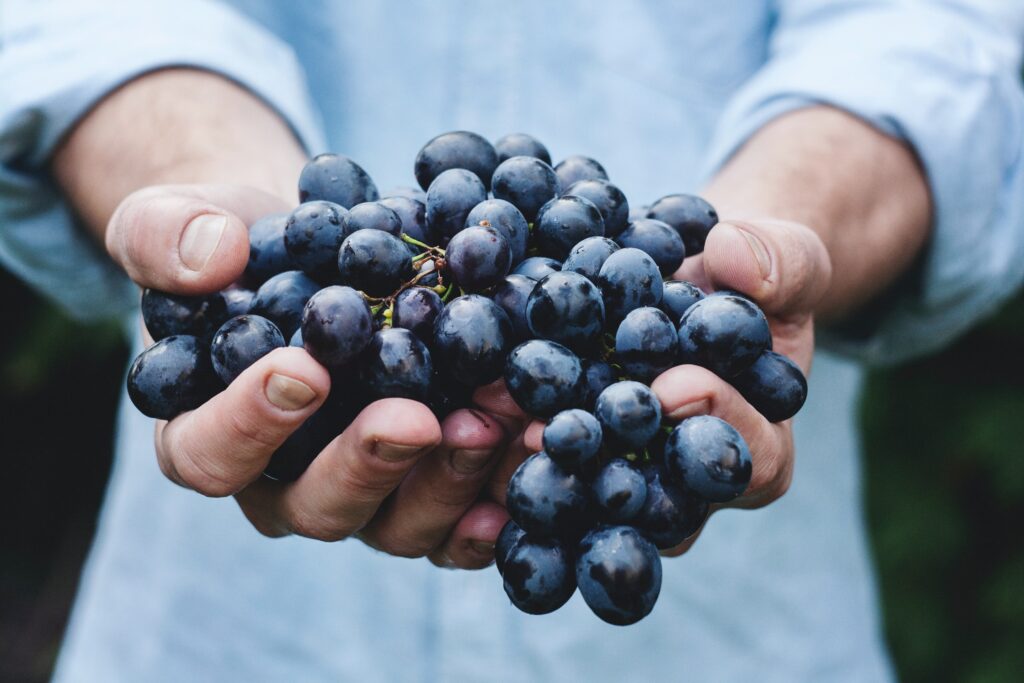Saanvi Nayar recommends "Foodie Pharmacology" for its insightful discussion of the cookbook "Plantology," on how adopting a plant-based diet can revolutionize our health and tackle chronic diseases, proving that food truly is medicine
2.
What’s in your cup? Various Beverages and their Health Effects — Part 2

By Jocelyn Spizman
With so many beverage options out on the market, it is helpful to understand the health effects of what we choose to drink. In this second section we will be exploring some sweet sugary favorites: soda, fruit juice, and wine. (See here for the first part on water, milk, and coffee)
Soda
Although there are a multitude of types of soda, in general they tend to include carbonation, added sugar products often including high fructose corn syrup, and other additives such as phosphate.[1]
Soda contains caffeine which, for those who do not like coffee or tea, can be a major benefit.
Yet, soda has a long list of harmful effects;[1,5]
- Soda contains high levels of fructose sugar which do not provide any nutritional content or the sensation of fullness. Thus, the liquid sugar content is only adding to one’s daily calorie intake. Soda is therefore a major contributor to weight gain, obesity, and diabetes.
- Soda’s high sugar content is turned into fat in the liver which can contribute to nonalcoholic fatty liver disease.
- Sugary soda is addictive; the sugar stimulates the release of dopamine in the brain and sparks a feeling of pleasure. Just like any other substance, sugar can be physically addictive and lead to dopamine-driven addiction.
- Soda is bad for our dental health.
- The phosphoric and carbonic acid in soda is highly acidic and can break down the enamel of our teeth,
- The sugar feeds harmful bacteria in our mouth; both contribute to dental decay.
- Soda has been linked to an increased risk of Gout; a condition known for joint pain and inflammation.
Fruit Juice
A delicious glass of fresh squeezed orange juice with breakfast may sound like the classic healthy beverage high in vitamin C and other healthy vitamins. Yet it is not as healthy as we may think due to the sugar content. In comparison to other beverages such as soda, fruit juice can be a healthy alternative.[2,3,6,7]
Some of the benefits of fruit juice include:[3,8]
- The juice contains the vitamins, minerals, and phytonutrients found in the fruit.
- This includes various antioxidants and phytochemicals which can:
- reduce your risk of cancer
- boost your immune system
- help fight metabolic diseases such as diabetes, obesity, and heart disease
- This includes various antioxidants and phytochemicals which can:
If you struggle to eat enough fruits and vegetables whole, juice can be a potential way to help get some of the phytonutrients and minerals.
Some of the harmful effects of fruit juice include:
- Even though it is a natural sugar, fruit juice has a very highly concentrated sugar content.
- When we juice a fruit we lose the fiber in the skin and pulp that helps slow the digestive process; without this fiber we have a quick spike in our blood sugar and insulin levels.[6,8]
- The high sugar content can feed bad bacteria on our teeth that cause cavities and tooth decay.
- The high sugar consumption can increase risk of becoming obese, developing type 2 diabetes or heart disease, along with other metabolic disorders.[6]
- Harmful bacteria can grow quickly in fresh squeezed juice.
- Juice only as much as you can drink for that time period or pasteurized commercially produced juices to help avoid drinking anything that could be contaminated.
- Commercial fruit juices often have added flavors, food coloring or other additives.
- Some studies have found elevated lead or other metals in national and private label fruit juice brands. This could contribute to neurodevelopmental problems in children.[2]
Wine
Wine is a classic and internationally beloved beverage that has shown surprising benefits in moderation over a multitude of intensive studies. In older times, when water was not as accessible, wine was essential to sustain life.

Some benefits of wine (in moderation) include:[4,9]
- Resveratrol, a polyphenol found in red wines, is a strong antioxidant and helps keep the blood vessels free of blockages. Polyphenols help reduce the risk of developing cardiovascular disease, due to the flavonoids that also have powerful antioxidant properties. Some studies have reported that light wine drinkers have a 33% decrease in risk of dying prematurely and a significantly lower mortality from cardiovascular disease and cancer.
- The antioxidants, specifically resveratrol, in wine has many benefits for aging individuals;
- The antioxidant can help fight off oxidative damage and inflammation, helping to promote longevity and fighting conditions associated with aging such as cancer, arthritis, and degenerative neurological conditions.
- Additionally, Resveratrol prevents macular degeneration, age-based deterioration of eye muscles, by preventing the growth of blood vessels in the eyes.
- Resveratrol can also help increase blood circulation which can help prevent wrinkles from forming and keep the skin elastic and brighter.
- Drinking wine in moderation helps strengthen the bones and prevent the development of osteoporosis.
- Drinking wine can help decrease “bad” LDL cholesterol and increase “good” HDL cholesterol, which can also help reduce the risk of cardiovascular disease and stroke.
- Some studies have found that one glass of wine a week in light to moderate drinkers have a reduced risk of depression.
- Consumption of wine has been shown in studies to help boost the immune system and increase the potency of vaccinations. The flavonoid antioxidants can help combat against viruses such as the flu and common cold.
- Wine has been associated with protection against dental plaque.
- Wine can help prevent dental cavities by inhibiting oral biofilm from growing in the mouth.
- Polyphenols in wine can help slow the growth of bacteria associated with tooth decay.
Some downsides to drinking wine:[10]
Although wine in moderation has plenty of benefits, it is hard to distinguish between light, moderate, and excessive drinking. The boundaries of how much wine a week or an exact number of glasses is unclear; there does not seem to be a “right” amount and can depend on many other personal factors. Many physicians are very reluctant to advise their patients to drink wine due to the toxic effects of binge drinking. Additionally, all of the beneficial effects of drinking wine disappear when people drink too much of it, and the trends flip to show worse health outcomes for those that drink to excess.
- Drinking three or more alcoholic drinks per day can increase blood pressure, as well as contribute to worsening of conditions like insomnia, gout, and asthma.
- Hundreds of thousands of Americans die of liver disease, due to the hard effects of alcohol on the liver.
- Some types of wine can have a high sugar content which can contribute to hyperglycemia, diabetes, obesity, and generally higher levels of triglyceride fat in the blood.
- Large amounts of wine, also known as binge drinking, can cause mental blackouts, trouble walking, seizures, vomiting, diarrhea, and many other serious health problems.
- Long-term repeated drinking of large quantities of wine can cause many serious health problems such as dependence and addiction, mental problems, heart conditions, liver damage, pancreas problems, and certain types of cancers.
- Women who are pregnant or breast-feeding should avoid drinking wine due to the possible birth defects and other serious harm to the unborn child.
- Drinking alcohol during pregnancy is associated with a significant increase in risk of fetal alcohol syndrome, miscarriage, developmental and behavioral disorders after birth.
So bottoms up to whatever you have in your cup! Here’s to choosing beverages with good hydration, flavor, and health benefits, all of course with moderation.
References:
- Are There Any Health Benefits for Soda? (n.d.). Retrieved November 1, 2020, from https://www.livestrong.com/article/493032-are-there-any-health-benefits-for-soda/
- Https://article.images.consumerreports.org/prod/content/dam/CRO Images 2019/Health/01January/Consumer Reports Heavy Metals in Juices Test Methodology 1-19 [PDF]. (2019, January). Consumer Reports.
- Is fruit juice bad for you and your children? (n.d.). Retrieved November 1, 2020, from https://health.ucdavis.edu/good-food/blog/is-fruit-juice-bad-for-you.html#:~:text=The more concentrated sugar and,health issues later in life.
- Jaret, P. (n.d.). Health Benefits of Wine. Retrieved from https://www.webmd.com/diet/features/health-benefits-wine#1
- Leech, J. (2018, August 29). 8 Evidence-Based Health Benefits of Kombucha Tea. Retrieved from https://www.healthline.com/nutrition/8-benefits-of-kombucha-tea
- Muraki, I., Imamura, F., Manson, J. E., Hu, F. B., Willett, W. C., Dam, R. M., & Sun, Q. (2013, August 29). Fruit consumption and risk of type 2 diabetes: Results from three prospective longitudinal cohort studies. Retrieved from https://www.bmj.com/content/347/bmj.f5001
- Petre, A., MS, RD. (2018, December 17). 8 Health Benefits of Yerba Mate (Backed by Science). Retrieved November 1, 2020, from https://www.healthline.com/nutrition/8-benefits-of-yerba-mate
- Petre, A., MS, RD. (2019, December 13). Is Fruit Juice as Unhealthy as Sugary Soda? Retrieved November 1, 2020, from https://www.healthline.com/nutrition/fruit-juice-vs-soda
- Portugal, W. T. (2019, December 6). 10 Health Benefits of Wine, According to Science. Retrieved from https://blog.winetourismportugal.com/10-health-benefits-of-wine-according-to-science
- Wine: Uses, Side Effects, Interactions, Dosage, and Warning. (n.d.). Retrieved from https://www.webmd.com/vitamins/ai/ingredientmono-989/wine#:~:text=Larger amounts can cause blackouts,and certain types of cancer.



